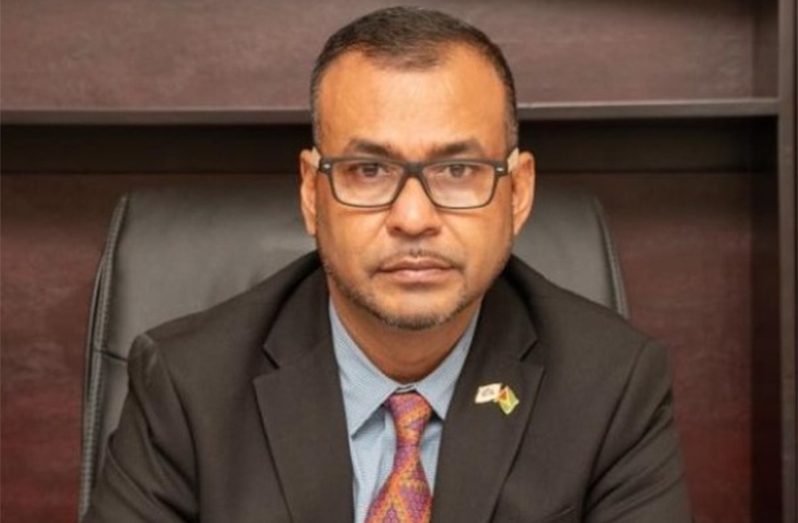– study finds 30,000 persons leave Guyana annually
By Navendra Seoraj
GUYANA is listed among the countries with the highest rate of emigration in the world, something which the new government is looking to address through a decisive strategy focused on engaging the Guyanese diaspora and encouraging re-migration.
With a population of less than a million people, Guyana, which sits on the edge of South America, has been losing some 30,000 persons annually due to emigration, said the Center for Strategic and International Studies (CSIS), which is based in Washington DC, in a recent report, following an analysis of the Guyanese diaspora.
Emigration is defined as the act of leaving a resident country or place of residence with the intent to settle elsewhere.
The CSIS report is a comprehensive analysis of the Guyanese diaspora and highlights some of the perennial challenges of brain drain and high emigration rate that Guyana faces. In general, the report, which was published in October 2020, initially addressed the factors influencing why Guyanese migrated post-independence.
Guyana’s socio-economic environment; the political climate, which the report deemed “unstable” and social unrest particularly influenced Guyanese educated elites to seek opportunities elsewhere.

The CSIS quoted a 2010 Aljazeera report titled “Guyana’s brain drain,” which stated: “The brain drain in this poor nation has been going on for many years as people emigrate to America, Canada, and Britain in search of a better life.”
This is evidenced by the findings in the CSIS report, which show that the Guyanese diaspora profile is classified as being an “educated and skilled” community.
According to the CSIS report, in the U.S., Guyanese are in professional, managerial or sales occupations while in Canada, Guyanese populate the service, business, and finance and healthcare industries.
In recognising the brain drain effect, the CSIS report concluded that unless the local government can convince qualified Guyanese to remain here and entice the members of the diaspora to return, development will be undermined.
In this regard, Guyana’s Foreign Secretary, Robert Persaud, has since affirmed that the government is doing exactly what was recommended by CSIS. He noted, too, that the report provides pertinent information, which will be used by the government to fulfill its mandate of ensuring there is a coordinated and well-constructed engagement with the diaspora.
“While the diaspora is already engaged in various ways, the government recognises that a better structure is needed to serve this cherished part of our population and to guarantee that Guyana has a fruitful and long-lasting relationship with those who are part of our overseas community,” said Persaud in an invited comment on Saturday.
The Ministry of Foreign Affairs and International Cooperation already has a functioning diaspora unit to allow for this structured engagement, aimed at strengthening relations and dialogue to foster national development.
Persaud said the unit has already started to engage international partners, like the International Organisation for Migration (IOM), and will engage others to develop projects and initiatives aimed at furthering the diaspora plans of the government.
NATIONAL DISAPORA STRATEGY
According to Persaud, the government, in collaboration with the International Organisation of Migration, has commenced the process of finalising a national Guyana Diaspora Engagement Strategy and the Plan of Action with a view to making the required and necessary adjustments before finally giving effect to the policy.
Within this broader policy framework, there will be specific emphasis on re-migration and the establishment of a well-functioning structure for re-migrants.
This strategy and the plan of action will be rolled out and implemented in the coming months. The recommendations and actions to be outlined in this strategy will assist in realising national development priorities and aid in fulfilling Guyana’s commitment to the 2030 Agenda for Sustainable Development.
“Further, we have an evolving framework that will facilitate sustained collaboration between Government and civil society, the private sector, and the diaspora, as we work towards ensuring that the diaspora is well engaged and adequately served,” said Persaud.
DIASPORA DESKS
To realise this plan, government will be establishing trade, investment and diaspora desks at key diplomatic missions and consular posts across the world. The Government will also be launching its “new and improved” diaspora website and social media platforms later this year.
As Guyana transitions into the regional energy giant, the need for tangible contributions from Guyanese, both here and abroad, will be one of the “key ingredients” in creating a Guyana for all.
“We want to position our oil and gas sector to be consistent with international standards and one which benefits all the people of Guyana…to make this happen, the human and financial capital of our diaspora will be essential,” said Persaud.
The Guyana Office for Investment (Go-Invest) will also be working closely with central government to engage the Guyanese diaspora.
In speaking about the office’s intention, Chief Executive Officer (CEO) of Go-Invest, Dr. Peter Ramsaroop, said: “If there are companies owned by Guyanese Americans, British or Canadians that want to focus on Guyana, we want to let them know that we are open for investment from them too.”
Dr. Ramsaroop believes that Guyana, in the near future, will need about one million more people to properly develop the country, so who best to return, than the sons and daughters of this soil.
“There are many investment opportunities, so we will be positioning ourselves to facilitate those investments,” said Dr. Ramsaroop, adding that Go-Invest will not be reactive.
The agency has already started crafting sectoral investment profiles, which will be used to identify Guyana’s needs, investment incentives and even help investors to determine their rate of return. Those sectoral profiles will also be used to market Guyana regionally and internationally.
Dr. Ramsaroop assured that there will be no discrimination when it comes to allowing persons to invest, as both foreigners and locals will be treated equally.




.png)









